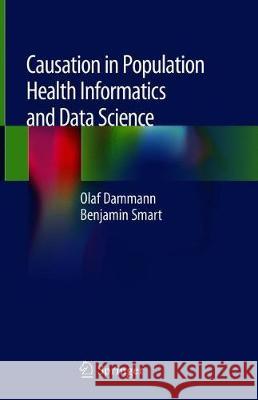Causation in Population Health Informatics and Data Science » książka
topmenu
Causation in Population Health Informatics and Data Science
ISBN-13: 9783319963068 / Angielski / Twarda / 2018 / 134 str.
This book comprehensively covers the overlap between informatics, computer science, philosophy of causation in science, causal inference, epidemiology and public health research.











